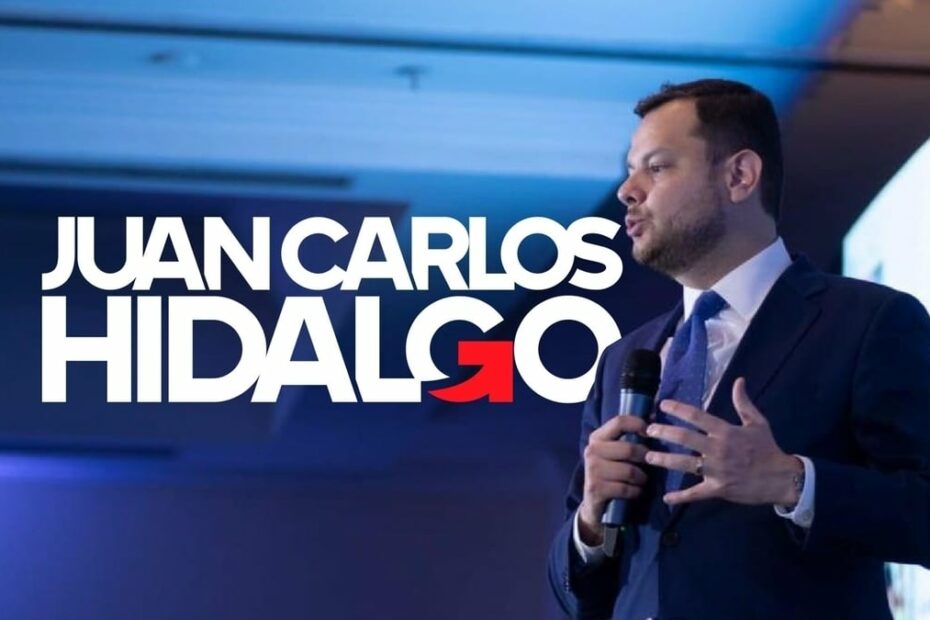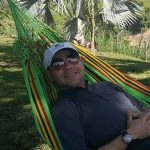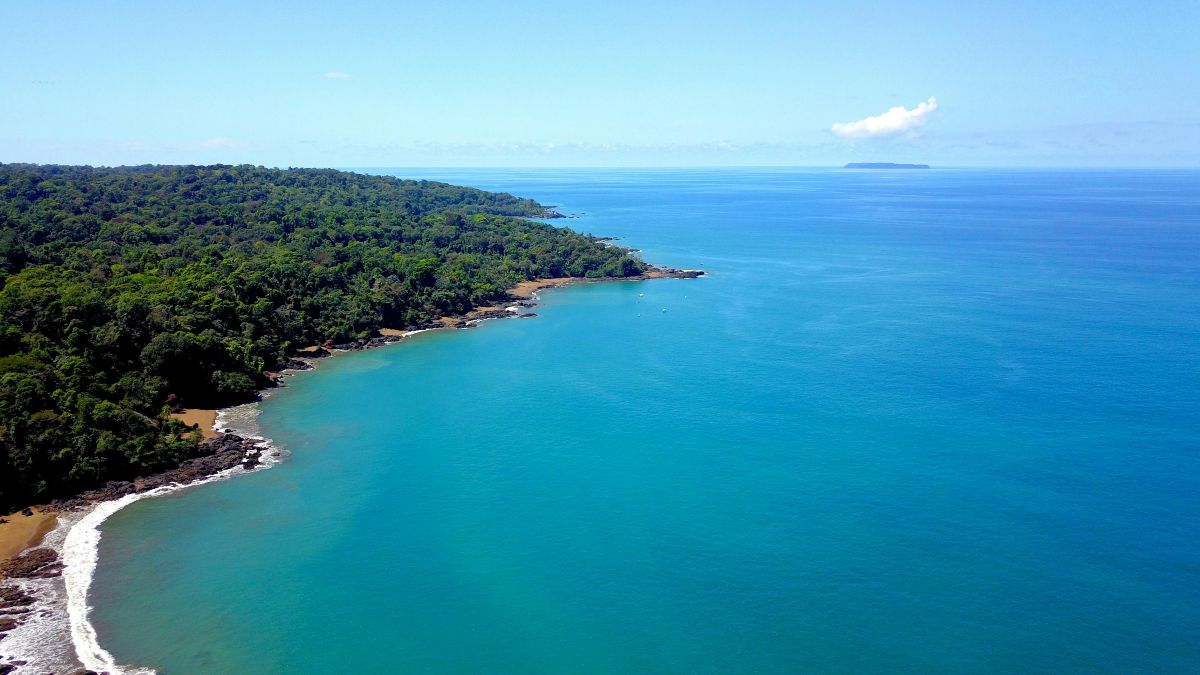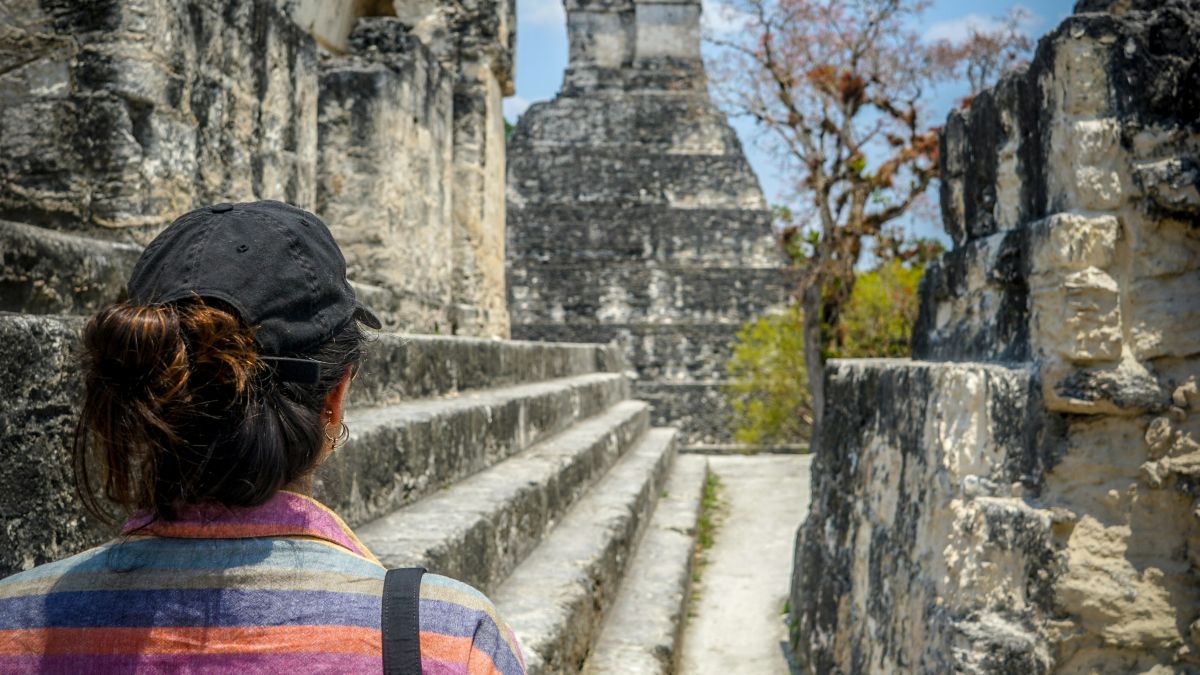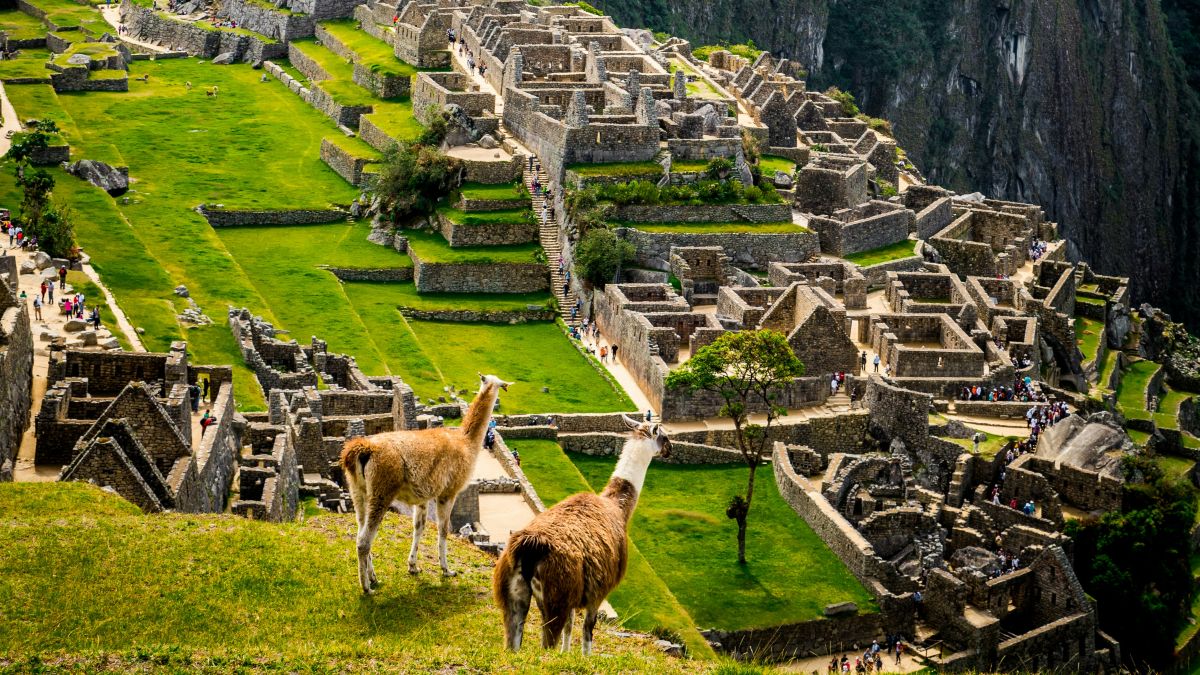Let’s Talk Tourism is a series of videos from Namu Travel Group founder and CEO Casey Halloran. Casey talks to movers, shakers, and experts in Costa Rican tourism. His goal is determine the state of the industry during the current pandemic and beyond. In his latest episode, he enters the world of Costa Rican politics, talking to economic and political analyst Juan Carlos Hidalgo.
Juan Carlos Hidalgo is not just an economic and political analyst.
He’s also a PUSC candidate for the Asamblea Legislativa (Legislative Assembly), Costa Rica’s equivalent of Congress, in the upcoming 2022 election.
Central America elections to watch in 2021 (El Salvador, Belize, Nicaragua, Honduras with an honorable mention to Costa Rica)#centralamerica #elections2021https://t.co/rzJWxWty4z
— CentralAmericaLiving (@VidaAmerica) January 12, 2021
Born and bred in Cuidad Quesada (San Carlos), Costa Rica, Juan Carlos studied at George Mason University in Virginia.
He then went on to work as a Latin American policy analyst for various D.C. think tanks, including the Cato Institute, moving back to Costa Rica for good in 2019.
Juan Carlos has written for the International New York Times, USA Today, the Miami Herald, Forbes, and the Huffington Post. In the Spanish press, he’s written for El País (Spain), La Nación (Argentina), El Tiempo (Colombia), El Universal (Mexico), and El Mercurio (Chile). He also had a regular column in Costa Rica’s La Nación newspaper. You can see Juan Carlos on CNN en Español, NTN24, France24, and Voice of America among others.
But that’s enough of his credentials.
On a personal level, Juan Carlos is a great guy, a friend, and one of the smartest people I’ve met over the course of the past year or so. Juan Carlos and his wife, Christine, both love Chelsea Football Club, which also makes them friends with this site’s editor! But I digress.
I’ve wanted to talk Costa Rica tourism with Juan Carlos Hidalgo for a while, and I’m honored he took some time out from his busy campaign to offer us some of his insight.
Below are the highlights of our conversation. We’ve outlined the essence of what we were talking about rather than providing an exact transcription. To see the whole conversation in detail, watch the video below:
While in the U.S., what was the impression you got when you told people you are from Costa Rica?
My impression is that people have a positive view of Costa Rica around the world. I remember during the 2014 World Cup when Costa Rica did very well; it put the country on the map, and people always told me how well we were doing. They were thrilled when I said I was from Costa Rica.
Generally people really like Costa Rica, although we’re also building a bit of an unwelcome image, too. What I mean here is that I remember one time being on vacation in Paris, and someone in a restaurant asked me where I was from. I said “Costa Rica”, and he said he’d love to go but it was too expensive. That was an eye-opener for me, seeing we had a reputation like that in France.
Overall though, Costa Rica has a positive reputation. We have a great image throughout the world and we need to make a use of it.
What did you miss the most when you were living in Washington?
Friends and family, of course. Speaking Spanish. I spoke a lot of Spanish in my job in D.C. but I missed speaking Spanish in daily life, going to stores or in taxis or whatever. And it’s not only about speaking Spanish, it’s all that comes with it. I missed the jokes and the nuances of Costa Rican Spanish.
The moment I missed Costa Rica most was during the 2014 World Cup, seeing the footage of everyone celebrating on the streets and partying. There was a group of Ticos in D.C. who I watched the games with, but it wasn’t the same.
When I made the decision to return, I was concerned about missing the comforts of the U.S. But I needn’t have worried. I came back expecting some kind of reverse culture shock, but it never came. I was immediately back, not only in body but also in mind, and I’m enjoying every minute of it.
What surprised you when you came back to Costa Rica?
The San Jose skyline has shot up since I lived in Costa Rica before. But other than that, a lot hasn’t changed. The infrastructure is still in pretty bad shape, and politics haven’t changed much.
I was never too detached from Costa Rica, as I always came back four or five times a year. But I never appreciated the changing face of San Jose on my visits back, and I suppose that’s surprised me the most.
Growing up in San Carlos, what was your first experience of tourism?
My elder cousin Mauricio worked in tourism in the late 80s/early 90s when Costa Rica was starting to become known as a tourist destination. He worked for the ICT back then, and I remember his work. Then he set up a travel agency, and my mom started working for him, so tourism is in the family.
Have you had much experience yourself with tourism in Costa Rica?
I wish I’d traveled more. I’ve been around, not so much as a tourist, but as a politician visiting places. I’m discovering places in Costa Rica on my travels, places like Turrubares which is beautiful… a rural canton in San Jose with a lot of tourism potential.
But I wish I could experience more of my country as a tourist than I have so far. Now my wife is here (she’s from the U.S.), I want to show her around more. We’re looking forward to this part of the campaign being over on June 27 so we can travel for a couple of weeks and see the country.
What has the country done right in terms of tourism?
We have a positive, successful brand. People have a positive image when you mention Costa Rica. They think about nature, meaning we’ve done a great job in Costa Rica of positioning ourselves as an ecotourism destination.
But we have challenges to our green image, too. For example, we dump some 85 percent of our untreated sewage into our rivers and oceans. That’s a calamity we need to address. But people think about beaches, volcanoes, and biodiversity, which is all to the good.
We still have so much potential to grow in Costa Rica. In 2014, the province of Guanacaste had poverty rate of 36 percent, way above the national average of 20 percent. From 2014 to 2020, the poverty rate of Guanacaste dropped to below the national average, and almost all that is down to tourism. We need to replicate around other parts of the country. I already mentioned Turrubares, but also the Caribbean, the Southern Zone, and elsewhere.
And then there’s the question of political stability. Costa Rica is an oasis of peace and stability in Central America, which is also part of our brand. But we need to fight a few factors that undermine that image. We need to tackle growing insecurity, and also the impression I mentioned earlier, that we’re an expensive destination.
It doesn’t have to be that way. People think we’re expensive because we’re “good”, and being expensive is somehow a positive thing. But we’re artificially expensive and we can lower the cost and become more attractive to more tourists.
What do you think the government misunderstands about Costa Rica tourism?
Costa Rican governments over the years have taken tourism for granted. They’ve assumed tourism will always be here and doesn’t need much attention. So they give more attention to other industries.
Tourism is a very democratic industry. To quote Obama, “the wealth spreads around,” meaning tourism generates wealth on the coasts and rural areas. One of Costa Rica’s biggest challenges is the disparity between rural areas and the Central Valley. We need to give tourism more attention to help generate wealth outside of the Central Valley.
How can the government make it easier for us to help ourselves?
The whole Costa Rican economy, not only tourism, needs structural reforms to become more competitive.
We know where the productive sector, the private sector is hurting most. Labor costs for example. Labor itself isn’t expensive, but our labor taxes are.
Costa Rica has the highest labor taxes in Latin America and some of the highest in the OECD. Now remember the OECD is a club of mostly rich, industrialized countries. Our labor taxes are still high compared to even these countries. That’s an area we need to address in Costa Rica, not only in tourism, but everywhere. But seeing as tourism is so labor intensive, lowering labor taxes would only help the sector.
We should also lower our 30 percent corporate tax, which is higher than the Latin American average, and significantly higher than the OECD average.
Tourism is also intensive when it comes to energy consumption. So we need to lower the cost of electricity by opening up the market and democratize energy production. If anyone wants to become independent of the ICE monopoly for their energy, they should be able to do so.
I mentioned our bad infrastructure earlier. We need to build good roads, regional airports, cruise ports, etc. The other thing we need is money to promote and market Costa Rica as a destination abroad.
Where did your political views come from?
I always liked politics. There’s a tape my mom made when I was small of me discussing Ortega in Nicaragua. And he’s still there, some 40 years later. So I was always interested in politics and world affairs.
I studied international relations at college, learning about diplomacy, history, international law, etc. You learn all that, but become an expert on none of it, so a professor encouraged us to find a job while studying, whether we got paid or not.
I took his word for it and got an internship with the diputado from San Carlos, working for free. The guy I was working for shared an office complex with Otto Guevara, the libertarian diputado. I began listening to him, learning from him, and ending up working for him. That was my introduction to classical liberalism.
I consider myself a classical liberal, although my views have evolved as I’ve grown older. I’ve become more pragmatic, less radical.
Do you think there’s room, culturally, for center-right ideas?
I think so. I like the example of Ireland. This was a country with similar economic institutions to Costa Rica’s, although they were 20 or 30 years ahead of us.
After their independence in the 1920s, they turned inward, became very nationalistic, adopting import substitution, which Costa Rica didn’t do until the 1950s. Then they had to deal with a dual economy from the 1960s to the 1980s, on one hand exporting goods and setting up free trade zone, while the rest of the economy stagnated with inefficiency and lack of competitiveness.
This is where we see Costa Rica right now. But then Ireland opened up, welcoming investment. They adopted a 12.5% tax rate and went from being the third-poorest nation in Western Europe to the second-richest in a matter of 20 years. So we can look at that example.
We’ve been center-left, with a big welfare state and we always emphasize that over a competitive economy. But we can have both.
We can have a competitive and a safety net, good pensions, decent healthcare. We don’t need to choose between one and another, and I’ll go further…
The only way we can finance a strong, robust welfare state is through a dynamic private sector paying taxes. That’s the message I’m trying to convey – you don’t have to choose between a strong welfare state and a competitive economy, you can have both.
En política no hay sillas vacías. Si usted se queda en su casa, otros escogerán por usted.
Apóyeme con su voto por la papeleta 7 en la provincia de San José el próximo 27 de junio. pic.twitter.com/mWBHen5OO6
— Juan Carlos Hidalgo (@jchidalgo) June 17, 2021
What is pura vida?
Pura vida is a mindset, a way of living. You don’t need to explain pura vida, you live it. Anyone who comes to Costa Rica realizes what pura vida is after a couple of days. It’s the best possible slogan for Costa Rica.
Are we at risk of losing it?
Some aspects of life in Costa Rica go against what pura vida stands for. The stress in the cities, the traffic, people losing their temper. Violence, drug trafficking, corruption. All these go against the pura vida we’re so proud of. But they’re solvable problems – not easily solvable, sure, but solvable – and we need to tackle them to save our pura vida.
What is your view on people spending like crazy and being in debt here?
This is a worrisome feature in Costa Rica. Let me go back to Ireland again, in the mid-2000s. A society that was historically poor suddenly become rich, with access to lots of credit. They had a property boom and then they went into crisis.
I see it in Chile, too. Societies that improve their lot have sudden access to credit, which is new for them, they don’t know how to handle it, and they get into trouble. You see financial institutions encouraging credit and it always end up bad, people losing their homes, losing most of their salaries to debt payment. In Costa Rica we definitely have the same problem and we need to see how we tackle it.
This was a great chat with Juan Carlos Hidalgo and I’m glad to get some insight on his views on tourism, and how to help the industry in Costa Rica.
If you’re interested in learning more about Juan Carlos Hidalgo and his campaign, check out his website or follow him on Twitter, Facebook, YouTube, LinkedIn, or Instagram.
Casey Halloran is the co-founder and CEO of the Namu Travel Group. He lives in San Jose, Costa Rica with his wife and children.
